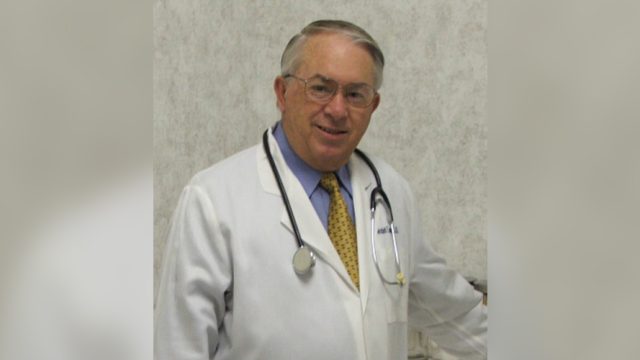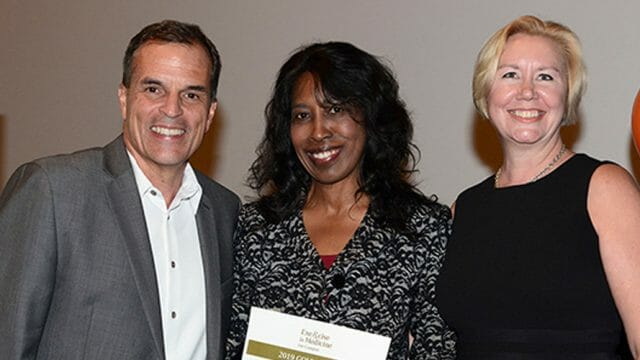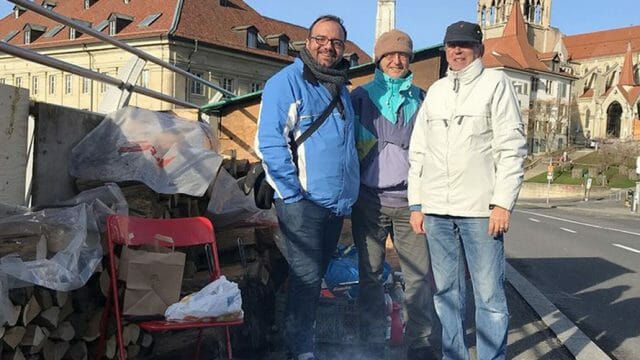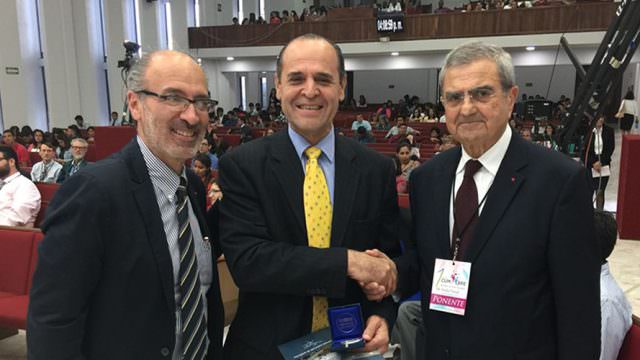God can be found both in the light and the dark.
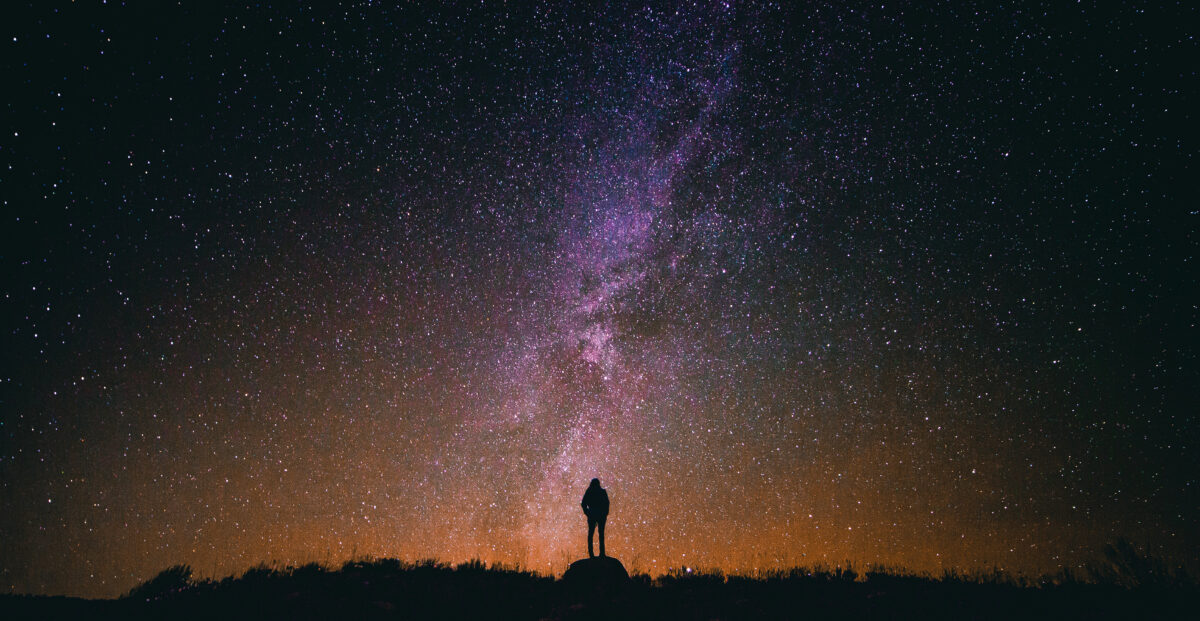
My mother had various ways of punishing me when I was a child. The form of punishment that caused me greatest distress was locking me out of the house at night. This might seem extremely harsh in North America, but in Ginger House, Jamaica, where I grew up, that was par for the course. I usually would be allowed back into the house after an hour or two.
When I was locked out of the house by my mother, I had to sit on the verandah in the dark. Our home was about 200 yards from a cemetery, and each sound I heard while confined to the verandah caused blood to rush to my head as my heart palpitated wildly. In my village, stories abounded about beings that lived in the cemetery and made their appearance in the dark.
Darkness was all around me as a child. I dreaded it, apart from those times when I was tucked up in bed. But now I have the opposite problem. There’s so much light around that I often crave the dark and sometimes wish that I were sitting on my Ginger House verandah in the dark. I have learned to appreciate the dark, and I’m no longer afraid of it.
Light and Dark
The Bible tells us that God is light, and that in Him there is no darkness (1 John 1:5). This truth is so central to the Christian faith that many hymns and poems have been written about it. We sing songs such as “The Lord Is My Light,” “Light Shining out of Darkness,” “Shine in My heart, Lord Jesus.”
Many of our favorite Bible verses are full of light: “The Lord is my light and my salvation” (Ps. 27:1); “Your word is a lamp for my feet” (Ps. 119:105);“The people walking in darkness have seen a great light” (Isa. 9:2); “In Him was life, and that life was the light of all mankind” (John 1:4).
Many today depend on the truth that God is light. They often find themselves in the darkness of depression, chronic sickness, or some other seemingly negative experience. Their only comfort is that God will bring them to light again. But as one of my favorite authors, Barbara Brown Taylor, says, “If they turned around and looked in the opposite direction, away from ‘God is light,’ they will find another truth, a truth of equal importance, a truth that is compelling, that God dwells in deep darkness.”
God comes to us in dark clouds, dark nights, dark moments, and in dark experiences. History tells us that God does some of His best work in the dark. Did He not come to Abraham in the dark when He decided to make a covenant with him regarding being the father of his chosen people? (Gen. 15). God also visited Jacob in the dark as he slept alone in the desert with a stone as his pillow and said to him, “I am with you and will watch over you wherever you go” (Gen. 28:15).
Shortly after the Children of Israel left Egypt, they were camped at the foot of Mount Sinai, and God was about to make a covenant with them. He told Moses that He would come down to him in a dense cloud, that the people would hear when He spoke to Moses. From the obscurity of fire, lightning, and thick smoke, God thundered, “I am the Lord your God, who brought you out of Egypt, out of the land of slavery. You shall have no other gods before me” (Ex. 20:2, 3).
The greatest work of God on earth was done in darkness: “From noon until three in the afternoon darkness came all over the land. About three in the afternoon Jesus cried out in a loud voice, ‘Eli, Eli, lema sabachthani?’ (which means ‘My God, my God, why have you forsaken Me?) . . . And when Jesus cried out again in a loud voice, he gave up his spirit” (Matt. 27:45-50).
Safe in the Arms of Jesus
God often uses dark experiences to do something special for us that could not otherwise be done in the light. Since this is true, it’s best that we don’t try to run from the dark. Instead, trust God in the dark. He is in the darkness as much as He is in the light. He walks with us in sickness, bereavement, in our pain, and in our sorrows, in joblessness and economic meltdown. He is with us in our discouragement and in our depression. He is with us in darkness as well as in light.
Barbara Brown Taylor says we often misunderstand the place of darkness in our lives, seeing it as undesirable and bad. We seek to dispel the darkness with the use of artificial light—alcohol, gambling, drugs, cheap and meaningless sex. She emphasizes that no one who has tried this artificial light to dispel darkness has a success story to tell. It never works! All that works is placing our faith in God and believing that He is with us in the darkness, whatever betides.
For those of us who like God to deal with us always in the light, we may fail to see Him when He comes to us in a dense cloud, through dark strangers, or in dark experiences. We might make the mistake of thinking that we are lost in the darkness, instead of recognizing that we are safe in the arms of Jesus. Based on the witness of those who have gone before, the dark cloud is often where God takes His people that He might do for them what He cannot do in the light. It is where he takes His people apart and puts them back together again.
What cloud has enveloped you of late? In what darkness are you immersed? Do you find yourself in a dark place as a result of COVID-19? Have you lost your job, or even loved ones in this pandemic? If so, my heart goes out to you. But keep trusting the One who is with us in both light and darkness; they are alike to Him.
“To be human is to live by sunlight and moonlight, with anxiety and delight, admitting limits and transcending them, falling down and rising up. To want a life of only half of these things is to want half a life, shutting the other half away where it will not interfere with one’s bright fantasies of the way things ought to be.”*
Don’t be afraid of the dark!
*Barbara Brown Taylor, Learning to Walk in the Dark (HarperOne, 2015), p. 55.


